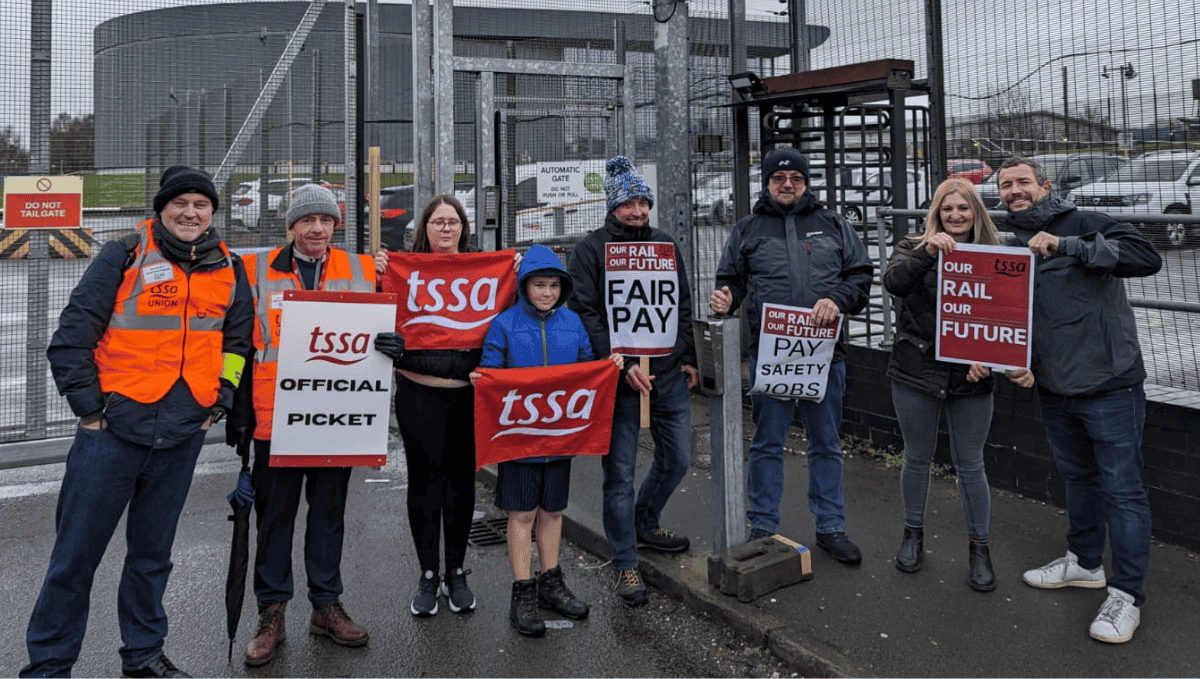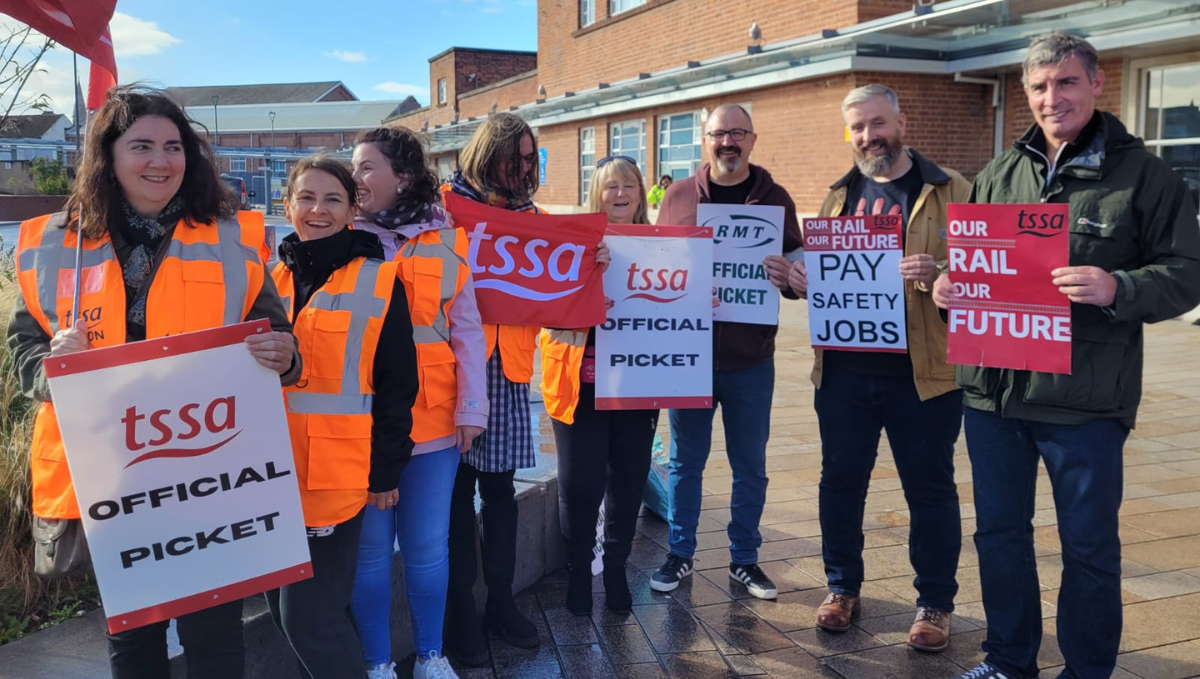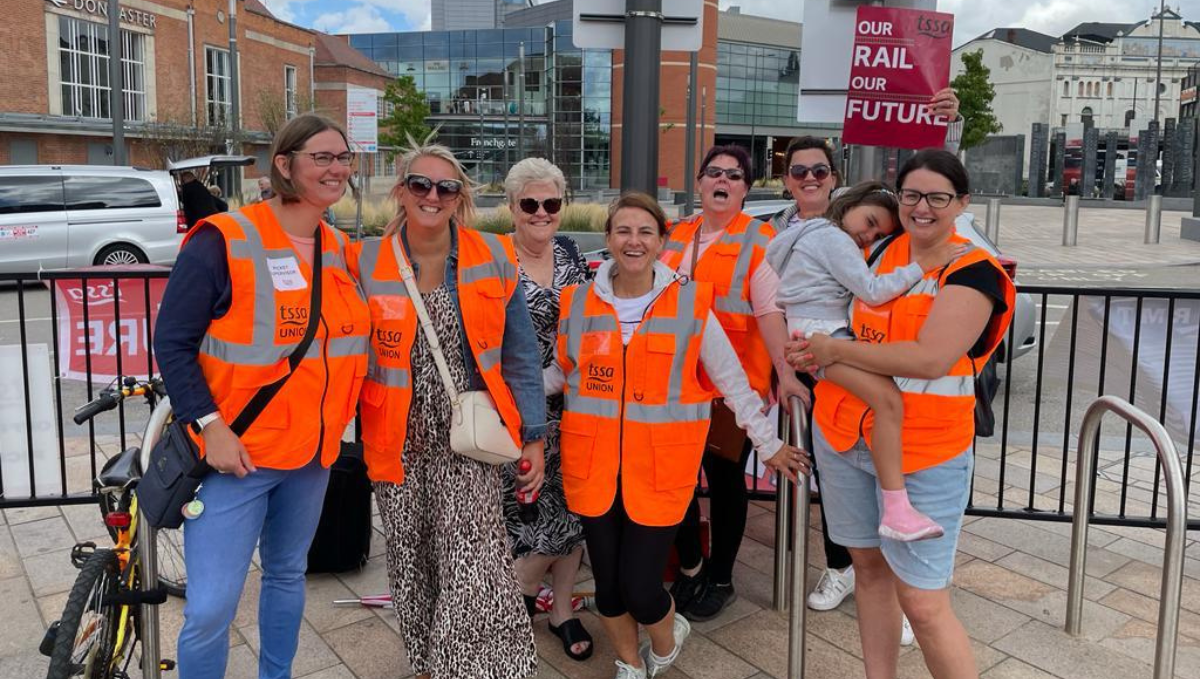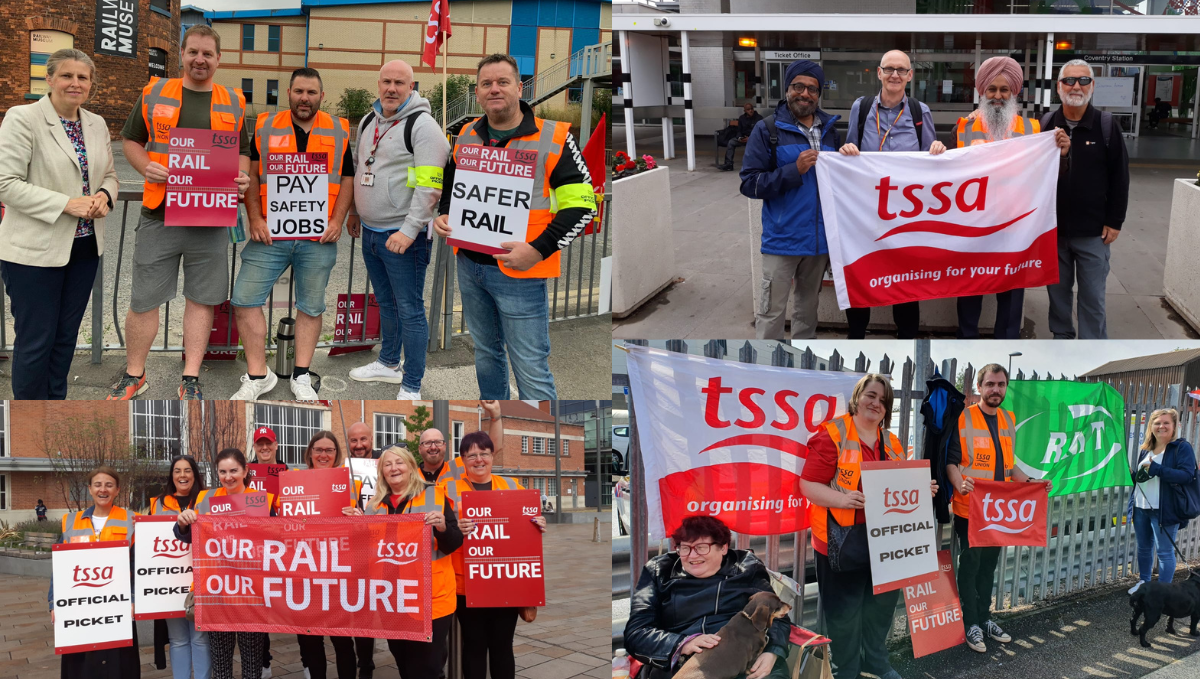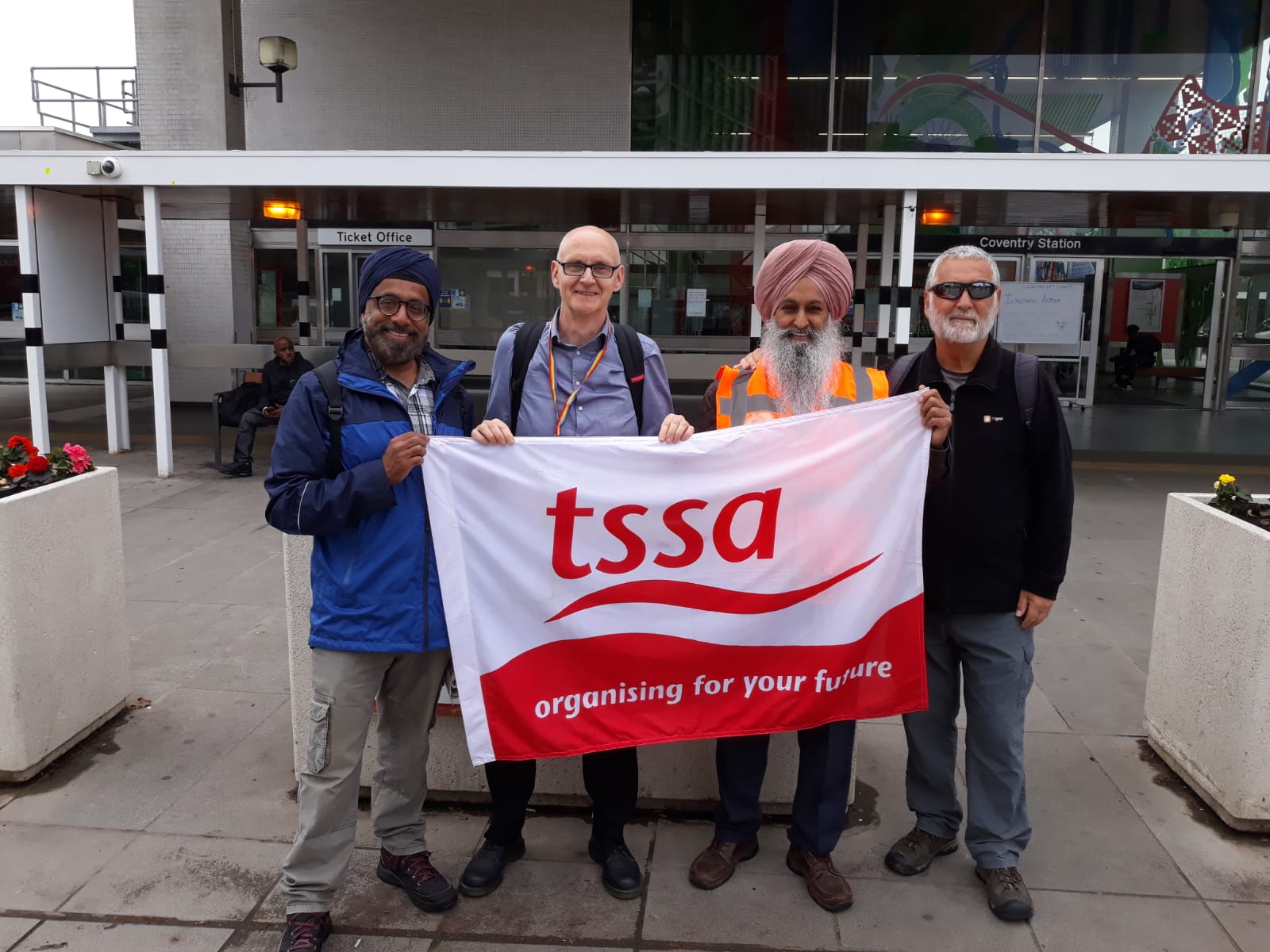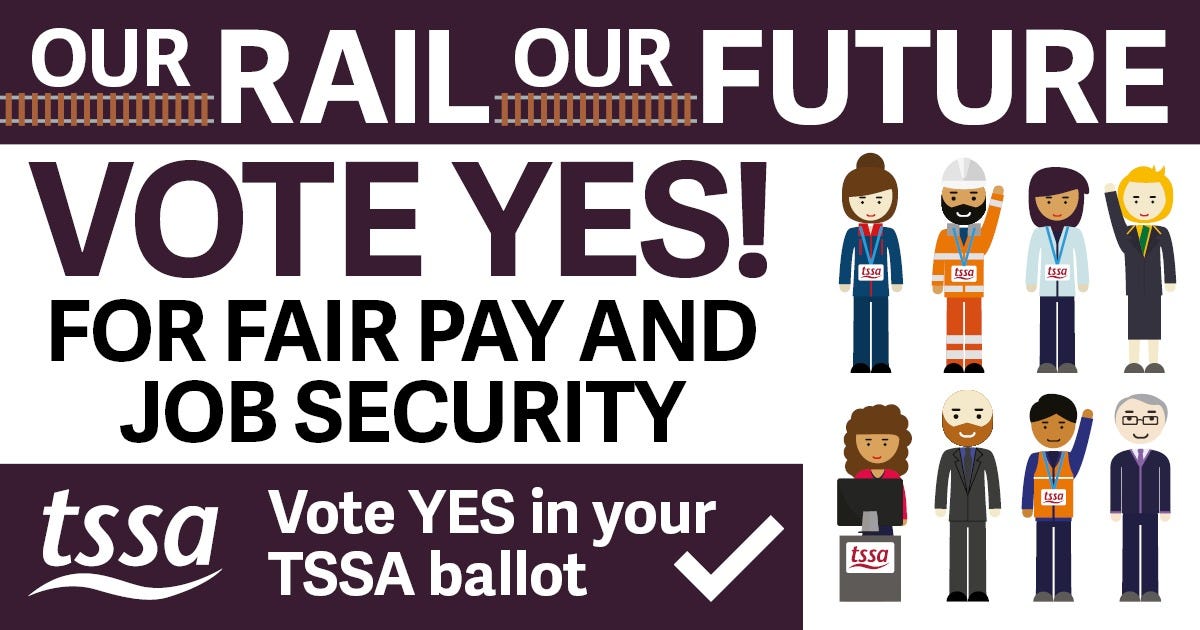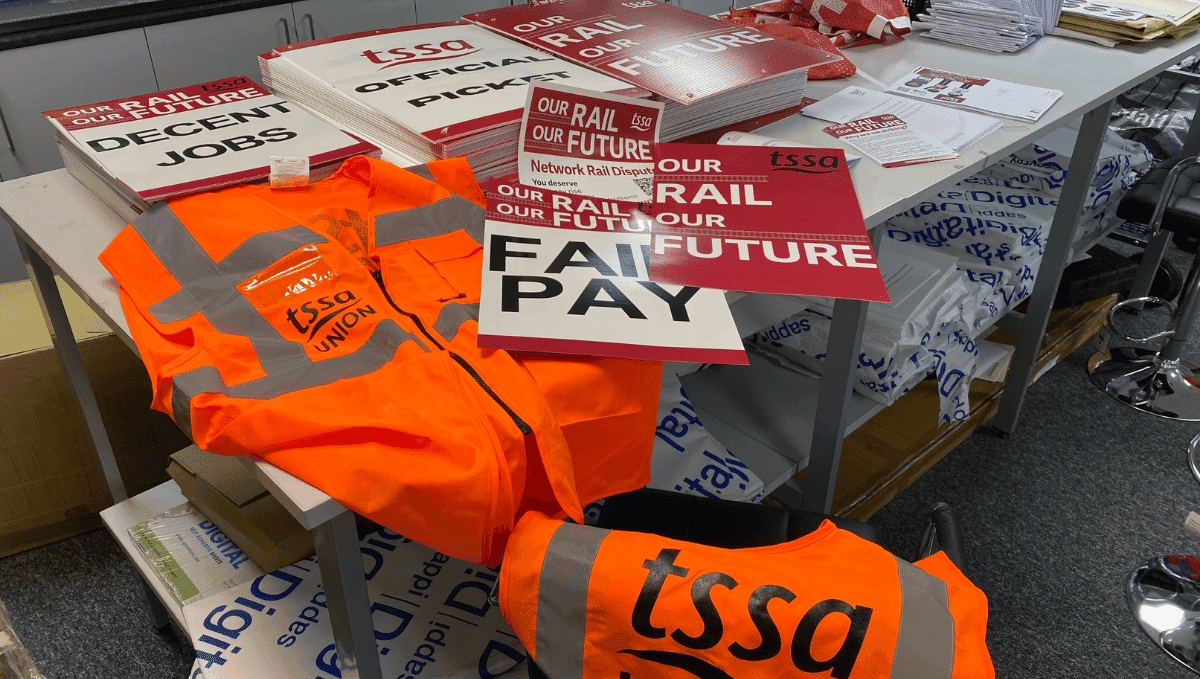NEWS.CATEGORY: Industrial
TSSA ballots for strike action on Elizabeth Line
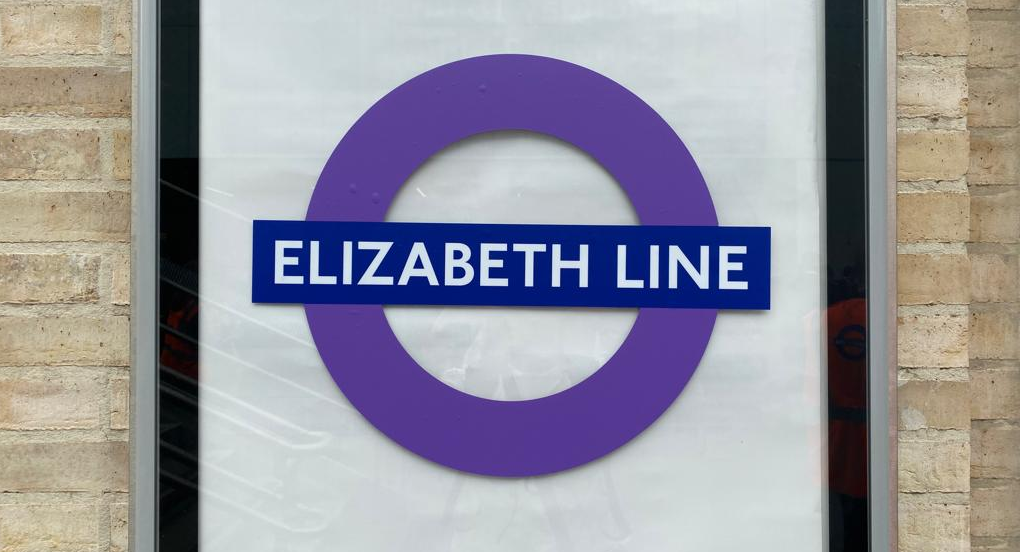
TSSA – the biggest union in Transport for London – is balloting members working on the Elizabeth Line for strike action. Ballot papers are issued today (Friday 2 December) in a dispute over pay, with the affected workers paid significantly less than equivalent colleagues across the network.
TSSA represents management grades employed by Rail for London Infrastructure (RfLI) including Traffic Managers, Service Infrastructure Managers and Incident Response Managers who are safety critical to running services across London’s new flagship west-east line. A strike by these staff would stop services running.
Timetable:
Ballot opens: 2 December
Ballot closes: 22 December
RfLI have offered 4%, however, workers at MTR – the outsourced part of the Elizabeth Line – received an 8.2% increase this year, Docklands Light Railway (DLR) staff received 9.25% and staff at London Overground have been offered 6.5%. Staff at MTR, in similar roles to TSSA members in RfLi, are on salaries up to £30,000 more than their RfLi equivalents.
Talks at ACAS over recent weeks have failed to make any breakthrough, so TSSA has moved to ballot for industrial action. In an indicative ballot last month, members voted 93% in favour of taking strike action and almost 97% in favour of taking action short of strike (ASOS) with a turnout of 90%. If this is replicated in the legal ballot, it will meet the thresholds and action could be called swiftly.
Mel Taylor, TSSA Organiser, said: “This dispute is fundamentally about unfairness and inequality in pay rates across the TfL network. RfLI need to change their Scrooge employment habits and make 2022 a happy Christmas.
“The Elizabeth Line is a brilliant addition to London’s transport services. Our members have years of experience and work on the most modern railway in the country yet are paid significantly less than staff doing similar roles across the network – including colleagues on the very same line. These are first class services provided by first class workers with second class pay.
“Our members feel very strongly about their treatment when it comes to pay, but health and safety and the threat to pensions are also issues in this dispute. Low pay is leading to high staff turnover, lack of fully trained staff, and reliance on overtime to run core services.
“Strike action by these workers would bring services across the Elizabeth Line to a standstill. There’s no need for it to come to that if RfLI can see sense and produce a fair offer which doesn’t continue to leave their staff the poor relations of the network.”
RfLi is an operational arm of the Transport for London network, falling under direct TfL control in the same way that London Underground does – ie it’s a wholly owned operator.

